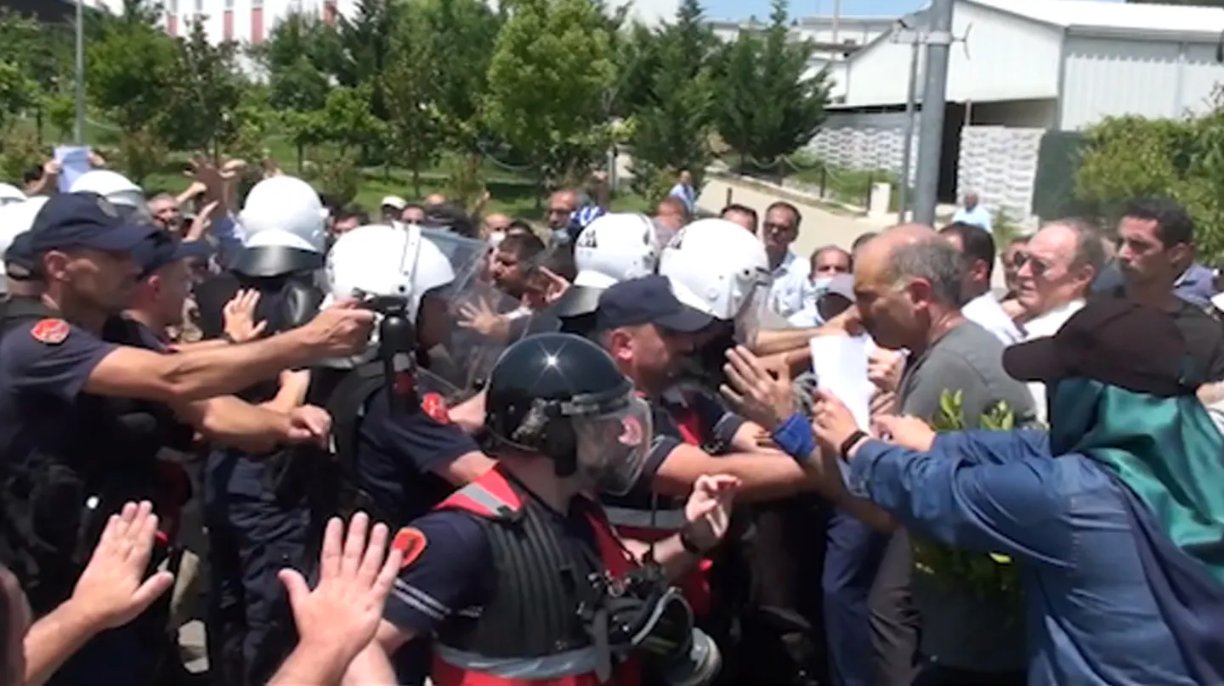Mojahedin against Tirana (and US): 'sensitive data' given to Tehran
In the June 20 raid, Albanian police forces seized hundreds of computers and hard drives. Some of the material, containing information on movements abroad campaigning against the theocratic regime, reportedly ended up in the hands of Tehran. Record number of executions in the Islamic Republic: 354 people in the first six months of the year.
Tehran (AsiaNews) - There is trembling dissidence, or the Iranian "resistance" in exile that fears prominent information and sensitive data related to and people who, from abroad, seek to oppose the Islamic Republic's leadership have ended up in the hands of the ayatollahs' regime.
The possibility that is far from remote, after the events involving militant and opposition groups that have long chosen Albania as their base, protagonists of harsh clashes with the police in Tirana.
In fact, in recent hours, senior Iranian figures claim to have received part of the hard drives taken by Albanian agents, seized from opponents in the raids following the violence: if so, says an AsiaNews source, the Resistance nuclei, Mek supporters and their families in Iran "would be in grave danger of arrest, torture and being executed."
On June 20, raids by Albanian police on the Ashraf-3 refugee camp in the capital's northwest suburbs, inside which thousands of Iranian People's Mojahedin (Mek) and family members have lived for more than a decade, left one person dead and hundreds injured.
The agents reportedly used pepper spray and seized hundreds of computers, inside of which was packed valuable information about contacts and operations of the dissident political movement, among the most active in fighting from outside the theocracy that has led the country since the 1979 revolution.
In a note circulated by the secretariat of Iran's National Council of Resistance (Ncri), top officials demand clarity from the government in Tirana and the United States amid fears that computers and memories seized from Mek have ended up in Tehran's hands.
The reference is to the announcement made on July 3 by Sepehr Khalaji, head of the Government Information Council, and relayed by the Fars agency close to the Pasdaran, that Tehran has received "part of the hard drives and computers." Inside them would be contained valuable "information" that would enable "identification" of resistance personalities with results described as "promising."
Over the past 10 days Iranian media and officials have revived rumors of contacts between "security apparatuses [of the regime] and countries such as Albania." Hence the call for "clarification" from the Mek leadership "to the Albanian and American authorities" to "deny" the news and ensure "full transparency" on the affair.
"If the shocking news of collaboration with religious fascism in Iran against Mek and the transfer of part of the 213 seized computers and hard drives" were "true," the note continues, it would be "a humanitarian catastrophe" and "violation of human rights."
"The responsibility," the statement continues, "falls on the governments" in Washington and Tirana. "Sharing any information on MEK with Iran's criminal regime, which has been condemned 69 times for human rights violations by the UN General Assembly and other international bodies, is a red line [that must] be pursued by international courts."
The government-affiliated official Iranian Mehr news agency had words of "praise" of the Albanian police for its actions against the MEH, which has been applauded by the Ministry of Intelligence (Mois) itself.
Finally, according to the online daily Hamshahri, which relays the words of Brigadier General Esmaeil Kowsari there would have been "for several months" intense "communications between the security apparatuses of Iran and countries like Albania, with very positive results." Hence the concerns of resistance groups inside and outside Iran.







.png)










